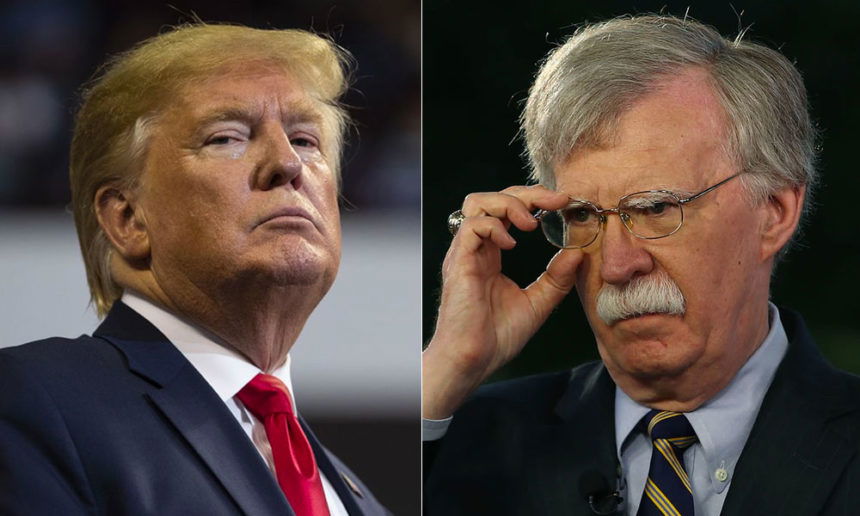Trump asked China’s president to help him win 2020 election, former advisor Bolton claims

WASHINGTON, DC -- Former national security adviser John Bolton claims President Donald Trump asked his Chinese counterpart, Xi Jinping, to help him win the 2020 US presidential election, according to an excerpt from his upcoming book published by the Wall Street Journal Wednesday.
That encounter, according to Bolton, took place during a June 2019 meeting between the two leaders in Osaka, Japan, where "Xi told Trump that the U.S.-China relationship was the most important in the world" and said that "some (unnamed) American political figures were making erroneous judgments by calling for a new cold war with China."
"Whether Xi meant to finger the Democrats or some of us sitting on the US side of the table, I don't know, but Trump immediately assumed that Xi meant the Democrats. Trump said approvingly that there was great hostility to China among the Democrats," Bolton writes in the WSJ.
"Trump then, stunningly, turned the conversation to the coming U.S. presidential election, alluding to China's economic capability and pleading with Xi to ensure he'd win. He stressed the importance of farmers and increased Chinese purchases of soybeans and wheat in the electoral outcome," he adds.
Bolton claims that he would have printed Trump's exact words as the "government's prepublication review process has decided otherwise."
The exchange between Trump and Xi described by Bolton is just one of several interactions involving the President that the former national security adviser claims were troubling, according to the excerpt.
Bolton says the House impeachment inquiry should have investigated Trump for several potentially dubious actions beyond those related to Ukraine, according to the New York Times, which obtained a copy of the book in advance of its scheduled publication.
Specifically, Bolton highlights Trump's willingness to intervene in criminal investigations "to, in effect, give personal favors to dictators he liked," noting cases involving law firms in China and Turkey, the Times said. "The pattern looked like obstruction of justice as a way of life, which we couldn't accept," Bolton writes, according to the Times.
Bolton's book, titled "In the Room Where it Happened," is scheduled for publication next week but has been the focus of a months-long legal battle between the White House and the former national security adviser.
The legal fight over the release of the book, which is billed as an insider's rebuke of Trump's foreign policy, escalated Tuesday as the Trump administration went to court to try to claw back Bolton's earnings for the book and to potentially stop the its publication, arguing in a lawsuit that Bolton had breached non-disclosure agreements and was risking national security by exposing classified information.
But the White House's legal action has done little to stop details from Bolton's book from becoming public as the New York Times and other media outlets revealed Wednesday that they obtained advanced copies.
Additionally, Bolton published an op-ed in the Wall Street Journal Wednesday titled, "The Scandal of Trump's China Policy," which paints his former boss as a US President who is overly susceptible to flattery and an administration that "struggled to avoid being sucked into the black hole of U.S.-China trade issues."
The suit, filed in Washington, DC federal court Tuesday, alleges that Bolton's 500-plus page manuscript was "rife with classified information," and prosecutors say that Bolton backed out of an ongoing White House vetting process for the book that he'd been obligated to do as a result of the agreements.
"(Bolton) struck a bargain with the United States as a condition of his employment in one of the most sensitive and important national security positions in the United States Government and now wants to renege on that bargain by unilaterally deciding that the prepublication review process is complete and deciding for himself whether classified information should be made public," prosecutors write.
The legal approach in the case is one of the more extreme attempts in recent years to stop a former Trump adviser from recounting his experience, and the administration's longshot attempt to stop the book's publication raises major First Amendment implications.

